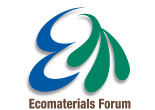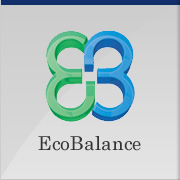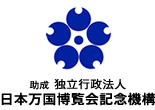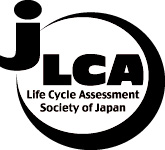
Global COE program
"Center for Education and Research of Symbiotic, Safe and Secure System Design"
Keio University

Ecomaterials Forum
Special sessions
The special sessions are proposed to discuss the following particular themes.
- Sustainability Index and Case Study
- Recent Progress in Material Flow Analysis and Sustainable Resource Management
- Renewable Energy for Sustainable Development
- Water Footprint
- Sustainable agriculture and food toward globalizing Asia
- Environmental Management Accounting
- Sustainable Nutrient Management
- Materials technology for resource sustainability
General Sessions
- G1 Input-output analysis
- G2 Impact assessment, risk assessment and interpretation
- G3 Footprint methodology
- G4 Sustainable Management
- G5 Design and management for the environment
- G6 International cooperation and LCA database
- G7 Sociology, psychology and education
- G8 New challenges in management of supply chain
- G9 Waste management and recycling
Topics of General Sessions
Special sessions
| Title | 1. Sustainability Index and Case Study |
|---|---|
| Organizers | Minako HARA Shun KAWAKUBO |
| Keywords | Social LCA, Urban Infrastructure, Sustainability Index, Sustainability Assessment, Socio-economic Impact Assessment, Sustainable Building Environment |
| Aim | Sustainability has been one of the environmental key concepts since publication of "The Limits to Growth". However, there is still no clear consensus on the definition of the term "sustainability". Therefore, this session aims to reconsider what sustainability is and to discuss how to measure it, from not only the environmental aspect but also from multiple aspects such as social, economic, regional, global viewpoints. The session will also present case studies on sustainability measurement of products/services, companies, social infrastructure, cities, and so on. |
| Title | 2. Recent Progress in Material Flow Analysis and Sustainable Resource Management |
|---|---|
| Organizers | Yasunari MATSUNO Kenichi NAKAJIMA |
| Keywords | Material Flow Analysis (MFA), Material Stock Accounting, Mineral Economics, Recycling, Sustainable Resource Management |
| Aim | Demand for materials has dramatically increased in the world in the last century and will further grow in the future. So, sustainable resource management has become a top concern. This session offers an opportunity to discuss recent progresses in Material Flow Analysis (MFA), Mining and Materials Engineering for sustainable resource management, e.g. methodological developments, applications, etc. Topics from Mineral Economics, Environmental Studies and other related fields are also welcome. Presentations including Resource Productivity Analysis, Material Flow and Stock accounting, and LCA are of particular interest. |
| Title | 3. Renewable Energy for Sustainable Development |
|---|---|
| Organizer | Kiyoshi DOWAKI |
| Keywords | Comprehensive Thinking of Energy and Resource, Effective Uses of Renewable Energy, Advanced Technologies for CO2 mitigation, Applicable Examples, Scenario Analysis |
| Aim | From the viewpoints of the abatement of energy supply risk and/or the protection of global warming, the practice uses of renewable energy resources would be significantly expected. For instance, photovoltaic, wind or biomass resources are promising as a candidate of alternative energy. However, it is known that there are barriers such as technological aspects and/or a cost problem in the promotion of target system. For finding the solutions, the creation of new idea/ concept or the optimization should be necessary through the wider discussion using LCA thinking. In this session, we would like to do active discussions on the topics from the technological stage to the social acceptability. |
| Title | 4. Water Footprint |
|---|---|
| Organizer | Masaharu MOTOSHITA Annette KOEHLER Norihiro ITSUBO Sebastien HUMBERT |
| Keywords | Water Footprint, Water Consumption, Inventory Analysis, Impact Assessment |
| Aim | Water footprint can be a notable tool for water resource management of products, processes and organizations through life cycle by accounting the amount of consumptive water use and evaluating impacts consequent to water use/consumption. In order to make water footprint more sophisticated, the common procedure (Standard and Guideline), methodology and database for accounting (inventory analysis), impact assessment indices/models and case studies of water footprints for products, processes and organizations will play a significant role. This session aims to share a knowledge of state-of-the-art activities related to these important topics and discuss for further advances in this field. |
| Title | 5. Sustainable agriculture and food toward globalizing Asia |
|---|---|
| Organizers | Kiyotada HAYASHI Kazuyo MATSUBAE |
| Keywords | Sustainable and Organic Agriculture, Food Labeling, Food Supply Chain, Land Use Change, Poverty and Aging |
| Aim | Agricultural and food systems in Asia are now increasing their presence. Global food demand necessitates the intensification of agricultural production in Asia; at the same time, the emerging population needs huge food imports. However, research on these issues from the life cycle perspective is limited. This session tries to discuss the following topics: (1) the establishment of sustainable agri-food production and distribution systems in Asia, (2) the design of effective and efficient policy framework to establish these systems, and (3) the setup of sustainable food supply chains while paying attention to land use controversies and poverty alleviation. |
| Title | 6. Environmental Management Accounting |
|---|---|
| Organizers | Michiyasu NAKAJIMA Norihiro ITSUBO |
| Keywords | Material Flow Cost Accounting, Environmental Accounting, Life Cycle Costing, External Cost |
| Aim | Environmental management accounting (EMA) is a management tool for organizations to do sustainable management in business. For example, material flow cost accounting (MFCA, ISO14051) is one of the most useful and popular EMA tools. MFCA can show an organization the material and energy inefficiencies in business process. The organization can improve the inefficiency with economic incentives by MFCA information. MFCA has been introduced in supply chain. Recently EMA tools have begun to be used as practical management to achieve both of environmental protections and economic benefits. This session will focus on the present performances and the future development of EMA. |
| Title | 7. Sustainable Nutrient Management |
|---|---|
| Organizers | Kazuyo MATSUBAE Rokuta INABA |
| Keywords | Nutrient Management, Phosphorus, Resource Governance, Recycle, Recovery |
| Aim | Nutrients, such as nitrogen and phosphorous, are key parts of food security and sustainable development. However, excess use and inefficient practices lead to nutrient overenrichment and degradation of the environment. This session will bring together to discuss the food production and consumption chain concerned about the role of agricultural nutrient resource availability and accessibility in global food security. Following topics are welcomed, *Global phosphate and potassium rock production and reserves, *N, P and K use efficiency in mining, agriculture, food processing, *Nutrient recovery and reuse, *Sustainable nutrient resource strategies and global governance *Overabundance / underabundance of nutrients. |
| Title | 8. Materials technology for resource sustainability |
|---|---|
| Organizers | Hideki KAKISAWA Kenichi NAKAJIMA |
| Keywords | Ecomaterials, Eco-design, TMR, Recycling, Resource Sustainability |
| Aim | Acquisition of maximum effectiveness and minimum usage of the limited resources on earth is the key for resource sustainability. For this issue materials science and engineering has been the fundamental of any eco-innovative technologies. The environmental burden of a material has been often discussed in terms of total material requirement (TMR), which indicates the accumulated volume of materials extracted from nature to obtain that material. The session focuses on the material design and technologies for sustainable usage of resources, specifically reducing TMR. Discussions to be made in the session include: • Substitution of common elements for rare metals • Effective utilization of rare earth elements • Technologies for reducing material usage and consumption • Recycling technologies • Environmental conscious materials • Analyses of TMR. |
Topics of General Sessions
General Sessions at the conference invite contributions that address the following Topics (please refer to the related keywords):
A. Methodologies for Ecobalance
- Inventory Analysis
- Impact Assessment
- Life Cycle Interpretation
- Uncertainty Analysis
- Risk Assessment
- Sustainability Assessment
- Material Flow Analysis / Stock Accounts
- Substance Flow Analysis
- Input-output Analysis
- Life Cycle Costing
- Cost Benefit Analysis
- Material Flow Cost Accounting
- Environmental Accounting
- Environmental Management Accounting
- External Cost
- Eco-efficiency / Environmental Index
- Eco-label / Environmental Footprint
- Life Cycle Management
- Design for Environment
- Eco-design
- Environmental Education
- Environmental Psychology / Sociology
- International and National Standards
- Carbon Footprint / Offset
- Water Footprint
- Database / Software
- Others
B. Implementation of Eco-innovation
- Information and Communication Technologies
- City Planning and Building
- Transport
- Biomass
- Energy Technology
- Agriculture and Food
- Manufacturing
- Resource / Mining
- Urban Mining
- Materials
- Chemicals
- Recycling and Waste Management
- Services
- Green Job / Green Servicizing
- Industrial Symbiosis / Ecoindustrial Development
- Supply Chain / Logistics
- Lifestyle
- Consumption
- Policy / Regulation
- Emission Trading
- Biodiversity
- Others
- None (Only Methodology)


























